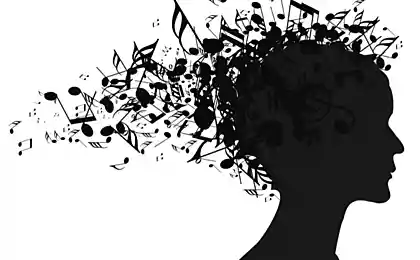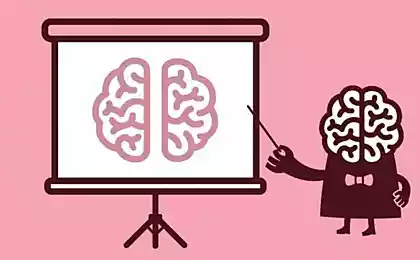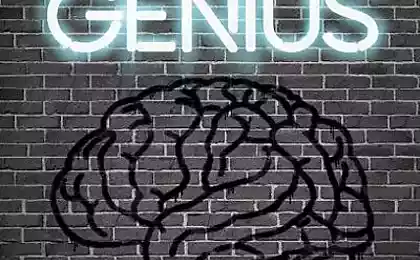323
How Music Affects Productivity: From Mozart to Techno

There are people who can not imagine work or study without their favorite music in headphones, and there are those who prefer silence. It is believed that listening to certain genres - from classics to techno - can affect concentration, creativity and even emotional state. But to what extent is this view supported by scientific research? And are there “universal” playlists that help you focus or relax?
In this article, we will give a brief overview of popular science data regarding the impact of music on productivity. Find out what mechanisms in the brain are activated by music, why the “Mozart effect” became a legend (and what its limitations are), and consider current research indicating that genres of electronic music like techno can have an unexpected effect on our performance. In addition, we will give some tips on how to form an optimal musical background to increase concentration and reduce stress.
The article is addressed to a wide adult audience interested in psychology, neuroscience and self-development. We will try to avoid being rigidly tied to current trends, so that the material remains relevant for a long time, and we will speak in a friendly, popular science style with a depth close to the expert level.
The Mozart Effect and Other Classical Studies
The Mozart Effect is perhaps one of the most sensational examples when a certain genre of music (classics, or more precisely, Mozart compositions) was associated with an increase in IQ and improved cognitive functions. The idea, which originated in the 1990s, quickly passed into popular culture, from parents including Mozart's babies to office workers hoping to quickly "brainstorm" before meetings.
- What the research says: According to the NCBI, initial experiments showed only a short-term effect, and some scientists believe that it is due to a general increase in mood, and not the magical influence of Mozart.
- Conclusion: Classical music (not necessarily Mozart) can improve your emotional background and briefly increase your ability to perform spatial-temporal tasks, but persistent “IQ increases” have not been recorded.

Why music can affect the brain
Let's briefly touch on the neurobiological background. Music affects several regions of the brain at the same time: the auditory cortex processes sound, the limbic system is responsible for emotional coloration, and the prefrontal cortex can be involved when we analyze the structure of the composition. This complex effect explains why music can influence:
- Mood and motivation: Certain rhythms and melodies raise levels of “joy hormones” (dopamine, serotonin), which can support productivity.
- Concentration: Some people are helped by background music to “turn off” external stimuli and focus on the task.
- Creativity: Rhythms and harmonic progressions sometimes stimulate the free flow of ideas, especially if the music is unobtrusive and enjoyable.
Techno, electronics and the “pulsating rhythm”
Modern electronic music – techno, house, trance – may seem far from the classics, but for many programmers, designers and other “digital nomads”, it is the rhythmic electronic beat that becomes the ideal background. What's the secret?
- Hypnotic effect of rhythm: Monotonous electronic bits create a constant pulse, which helps the brain stabilize its “wave of activity”, reducing the “penetration” of distracting thoughts.
- Minus the word: In techno, there is usually no vocal (or minimal vocal), which means less language interference. This is important because, as cognitive psychology shows, lyrics in music can load the verbal centers of the brain and interfere with focus.
- Volume level: The “moderate” thickness of techno acts stimulatingly, and the excess level can tire. It is always worth adjusting the volume and choosing tracks that do not overload.
Warning about "dependence" on bit
However, keep in mind that a “too tough” rhythm with high BPM (blows per minute) can cause tension or even increase aggressiveness in some people. Everything is individual and you are the main experimenter to find the right balance.

How to choose music for different tasks
1. For deep concentration (writing text, analytical work)
Here perfectly works calm classics (not necessarily Mozart, Debussy, Chopin), ambient, minimalist electronics without sudden transitions. It is important that the music does not distract attention with frequent changes in volume or pronounced vocals.
- Playlist example: calm piano pieces, ambient "drone" style, or "lofi hip hop" mixes from YouTube.
2. For creative jerks (brainstorm, drawing, search for ideas)
Moderately energetic music with a palpable rhythm, but without an aggressive structure, stimulates a “moderate excitatory tone” of the brain that supports creative flow. Some prefer jazz, funk, or even light techno/house options.
3. For “mechanical” work (routine, sorting, cleaning)
When the task does not require high mental concentration, you can include more dynamic tracks - from rock to hip-hop, depending on taste. The main thing is that the music does not provoke overstrain or aggression.
Practical tips for creating the perfect playlist
- Start with introspection: Ask yourself which tracks you feel empowered and which are distracted. It's individual.
- Divide playlists by task: “Think and write”, “Silent reading”, “cleaning / physical activity”. Let the set of tracks for each category be aligned with the pace and complexity of the activity.
- Watch the volume: Too loud — the brain is overloaded, too quiet — the effect is lost. Find the middle ground.
- Experiment, but don’t change the track every minute. The constant search for new music is distracting. Choose a playlist in advance so as not to waste time in the process.
- Sometimes practice complete silence: Silence can also be extremely useful, especially if work requires maximum cognitive resources.
The “musical key” to productivity
Music can really change our state, from emotional upliftment to more subtle concentration. Some genres cause a storm of feelings and energy, others help to “maintain a level background”, in which it is easier to solve problems. Research and experience of millions of people confirm that the right soundtrack can be a great tool for increasing productivity and emotional well-being.
And yet there is no universal formula suitable for everyone. For some, the classic will be saving, for others - techno, minimal or ambient. The key is to make a conscious choice of music, test different options, and watch your mood and performance change. Do not forget about breaks in sound: the brain periodically needs silence to “rest” from any external stimuli.
We hope that this review has given you a different perspective on listening to music while working or studying. Try to start your “experiment” today: make a few thematic playlists, focusing on the nature of the tasks, see how your productivity changes. Perhaps this is how you will discover a new musical key to success in work and creativity.
How to read pictures: hidden symbols in famous masterpieces
How to maintain health and energy for years to come























